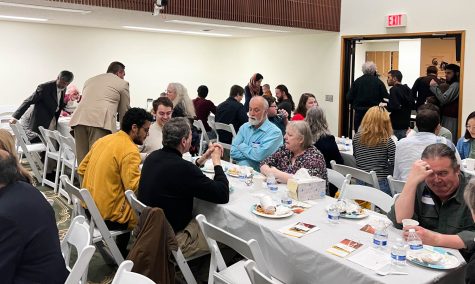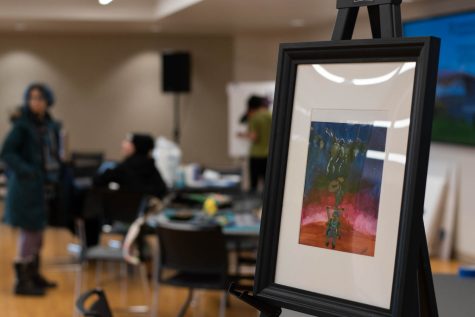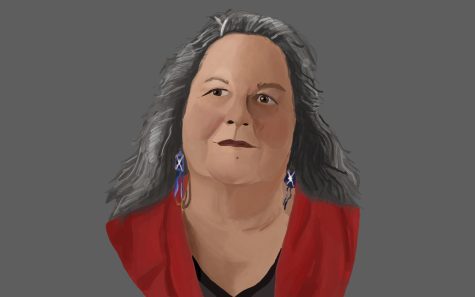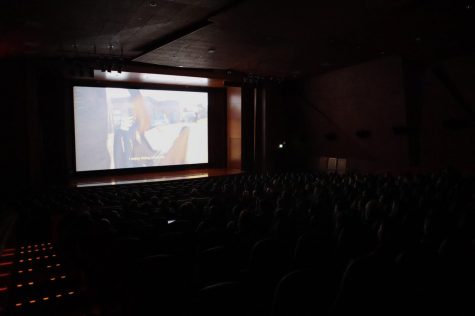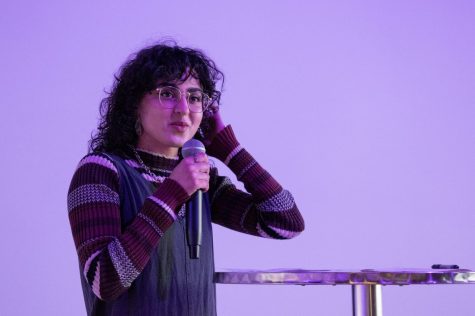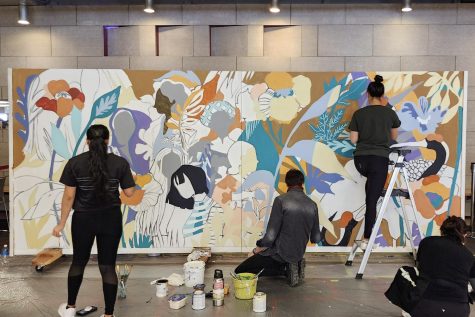Research in progress
September 24, 2014
The words “lavori in corso,” Italian for “work in progress,” greet anyone who visits Maria DePrano’s office. A friend of DePrano’s in Italy made a tie out of the tape (similar to “caution” tape in America) and later gave it to her because she liked it so much.
It’s a fitting phrase for a WSU Department of Fine Arts professor whose own “work in progress” earned her a Villa I Tatti Fellowship for 2013-14.
DePrano is back this semester after spending a year conducting her research at the Harvard University Center at Villa I Tatti in Florence, Italy. The Villa I Tatti offers 15 year-long fellowships each year for scholars to research any aspect of the Italian Renaissance.
The subject DePrano has been focused on for years is the Tornabuoni family, an elite, aristocratic clan in Florence during the 1400s. The Tornabuonis were related to the Medici family and commissioned works of art, including medals, portrait paintings and frescos.
The Tornabuonis were interested in the women in their family to an unusual extent, given our understanding of women’s place in society in the 15th century, DePrano said. This focus on women adds to the family’s importance in art history.
DePrano has done extensive archival research on the memorialization of women in the Italian Renaissance, WSU professor of English Will Hamlin said. Hamlin and DePrano are both Renaissance scholars and met through their common interests.
“I think her work is groundbreaking in the degree to which it challenges received ideas about gender relations and patronage in the Italian Renaissance,” Hamlin wrote in a statement.
Her research on the role of women in the Renaissance brings something new to the field, since Western culture has traditionally been male dominated, said Thom Brown, fine arts department chair.
Not only is DePrano proficient in Italian, Latin and German, but Hamlin said she is also an expert in 15th century Italian paleography, the study and decipherment of ancient writing.
The Villa I Tatti Fellowship was by no means DePrano’s first trip to Italy. She visited the country during summer break when she was an undergraduate at UCLA, and again for a backpacking trip. She received a Fulbright Grant in 2000 to Italy as well.
One unique aspect of the Villa I Tatti was that the fellows ate lunch together every day, enabling them to discuss their projects and research, DePrano said.
“I was living in a very special place for a year,” she said.
Every day, DePrano said she was able to walk through the beautiful grounds of Villa I Tatti, a more than 66 acre property with 7 acres of gardens.
“I did walk around pinching myself,” she said.
DePrano teaches art history, often covering Italian art. While in Italy, she said she spent a week on the Bay of Naples, went to Pompeii, and was able to go to the ancient Roman town Herculaneum and visit homes that were still painted with ancient Roman frescos.
“(It was exciting to think) ‘Oh, this is where they ate dinner or, this is where they went to sleep every night and these are the paintings that were on the walls next to them,’” she said.
While she travels, DePrano photographs the places she visits to use in her classes.
“I can’t take (the students there) in the middle of the semester, but I can take the pictures to them,” she said.
The Villa I Tatti donated 23 books to WSU at the end of DePrano’s fellowship. The books are currently sitting in the original shipping boxes in Robert Matuozzi’s office, waiting to be processed. Matuozzi works in Research Services at the Holland/Terrell Libraries and said the books will be on the shelves ready to be checked out by WSU students and Orbis-Cascade Alliance member institutions by the end of the semester.
The assortment of books is highly specialized and several are written in Italian, Matuozzi said. He added that, even though WSU had to pay for the shipping of the books, it was a very affordable way to add hundreds of dollars’ worth of research books to the library.
DePrano has not only been one of the largest consumers of books from the library and interlibrary loans, but she has also indirectly and directly helped increase the university’s collection, Matuozzi said.
When she arrived at WSU, DePrano “badgered” Matuozzi about getting “Grande Dizionario” for the library, a 22-volume Italian dictionary that offers all possible meanings of a word in chronological order of its usage, he said.
Publishers of books on Renaissance arts also send DePrano review copies and she often donates those to the library, Matuozzi said. “She’s thinking about us.”









